Business
Senators, Reps query NCC over secret recruitment, arbitrary funds increase
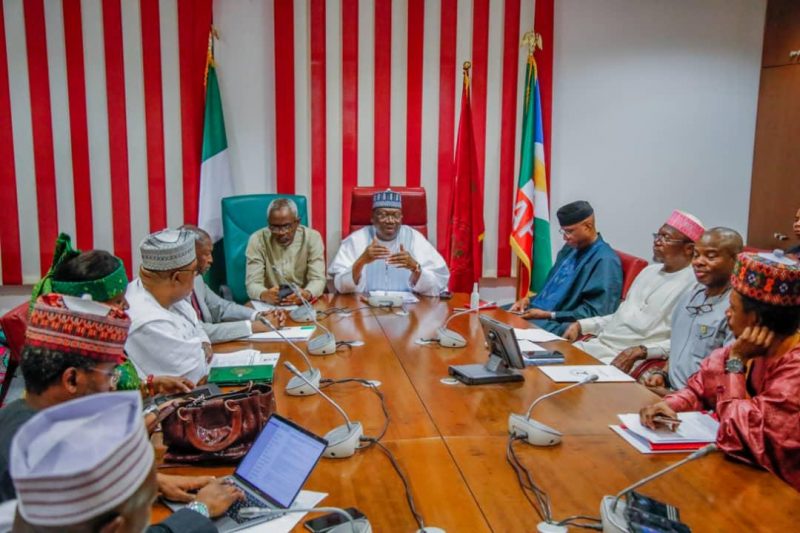
Federal lawmakers on Monday queried arbitrary increase in the financial provisions for payment of consultancy service of Nigerian Communications Commission (NCC), and N29.195 billion proposed for payment of salaries and wages in the 2021 fiscal year, against the sum of N16.850 billion approved in the 2020 fiscal year.
Members of the Joint Senate and House of Representatives’ Committee on Telecommunications, who raised the red flag during the 2020 budget performance and 2021 budget defence presented by the NCC Executive Vice Chairman, Umar Dambatta, also demanded an explanation over the increase in the consultancy services of N1bn proposed for 2021 against the sum of N394.331 million approved in the 2020 Appropriation Act.
One of the aggrieved lawmakers, who queried the Director of Finance and Administration’s report on the wide variance between the proposed N29.195 billion salaries and wages for 2021 and N16.850 approved for 2020 in relation to the 300 staff recruited by the commission, alleged that “you employed people but it was done through the backdoor.”
Hon. Siaka Adekunle Ayokunle alleged that “a lot of things are shredded in secrecy here”, expressed concern over the difference between the projected revenue and expenditure,
Senator Emmanuel Orker-Jev who expressed concern over the recruitment of the 300 workers, stressed the need for the commission to provide the nominal roll with a view to ascertaining the actual number of employees and adherence to federal character policy.
Dambatta, who was asked by the Director of Finance and Administration to provide details of the budget performance for the year under review, had said the budget performance as of November 30, 2020 showed the total budget of N140.383 billion, but the actual came to N79.660 billion.
He said, “For the expenditures (recurrent), a total recurrent expenditure that was budgeted was N39.297 billion and what was spent was N28.5 billion.
“Under the capital project, the total capital expenditure was budgeted at N8.129 billion and the actual as at 30th November was N1.427 billion.
“For special projects, the total budget was N20.863 billion and what has been spent so far is N13.65 billion.
“For total capital project, the budget was N28.9 billion and what was spent was N1.4 billion; Transfer to USPF, N7.5 billion was projected and N5.583 billion was spent.
“For Transfer to Federal Government of Nigeria, N64.208 billion was budgeted and N35.7 billion was remitted.”
On the revenue side, the commission realised total sum of N167 million out of N1.5 billion budgeted for licensing fees; realized N51.5 billion out of N68.5 billion for annual operating levy; realized N22.778 billion out N47.653 billion budgeted.
From the documents presented to the joint committee, proposed total revenue expected for 2021 stands at N112.810 billion and an additional sum of N49.527 billion from funds for broadband infrastructure and transfer from reserve (totalling N162.067 billion for 2021), against the sum of N123.132 billion and an additional sum of N17.252 billion from funds for broadband infrastructure (totalling N140.384 billion) for year 2020.
The total recurrent is also expected to rise from N39.297 billion in 2020 to N61.541 billion in 2021; total capital and special expenditure are to rise from N28.993 billion in 2020 to N51.524 billion in 2021; showing an overall increase in the Commission’s total expenditure from N68.290 billion in 2020 to N113.065 billion in 2021 as proposed.
The commission’s projected transfer to the Federal Government for the year 2021 is N42.002bn against N64.208bn for the year 2020 out of which N29.697bn has so far been remitted, in addition to N5.5 billion paid recently.
Chairman, House Committee on Telecommunications, Hon. Akeem , said, “Legislative approval to budget proposal is a cardinal ingredient of democratic practice. It provides a window of checks on the expenditure profile of the Executive, so the people, through their representatives have a say on how the Executive arm of government runs the government as part of the checks and balances of governance.
“It is pursuance to this that we are here to examine your proposal for 2021. The extent to which your commission was able to meet its 2020 budget responsibility will also be examined to identify if they were problems and how to resolve them where they exist.”
Adeyemi who directed the NCC management team to provide the nominal roll for further legislative action, said the “Committee will call for interactive session sometimes next year with the view to addressing some of the concerns raised.”
Dambatta promised that the nominal roll would be made available to the committee as requested.
Business
PH refinery: 200 trucks will load petroleum products daily, says Presidency

PH refinery: 200 trucks will load petroleum products daily, says Presidency
No fewer than 200 trucks are set to load petroleum products at the government-owned Port Harcourt Refinery, the presidency has said.
A presidential spokesperson, Sunday Dare, made this known in a statement through his official X handle on Tuesday.
Newstrends had reported that the Nigerian National Petroleum Company on Tuesday announced that Port Harcourt Refinery has resumed operations and crude oil processing after years of inactivity.
READ ALSO:
- US-based Nigerians get 30-year sentence over $3.5m romance scam
- 4 Nigerians arrested in Libya for alleged drug trafficking, infection charges
- BREAKING: Port Harcourt refinery begins operation
Reacting, Dare said, “200 trucks are expected to load products daily from the refinery, Renewing the Hopes of Nigeria.”
He added that “the Port Harcourt refinery has two wings.
“The Old Refinery comes on stream today with an installed production capacity of 60, 000 barrels per day of crude oil.”
PH refinery: 200 trucks will load petroleum products daily, says Presidency
Business
Breaking: CBN increases interest rate to 27.50%

Breaking: CBN increases interest rate to 27.50%
The Central Bank of Nigeria (CBN) has raised the lending interest to 27.50 per cent from 27.25 per cent.
This latest increase in the Monetary Policy Rate came after a meeting of the Monetary Policy Committee (MPC) of the Central Bank of Nigeria (CBN) on Monday and concluded Tuesday.
The Monetary Policy Rate measures the benchmark interest rate.
The CBN Governor, Yemi Cardoso, announced this in Abuja on Tuesday after the MPC meeting, last for the year, held at the apex bank’s headquarters.
He said the MPC voted unanimously to raise the MPR by 25 basis points from 27.25% to 27.50%; and retain the Cash Reserve Ratio (CRR) at 50% for Deposit Money Banks and 16% for Merchant Banks.
The CBN governor also said the MPC retained the Liquidity Ratio (LR) at 30% and Asymmetric Corridor at +500/-100 basis points around the MPR.
Business
Nigeria’s unemployment rate dropped to 4.3% in Q2 – NBS
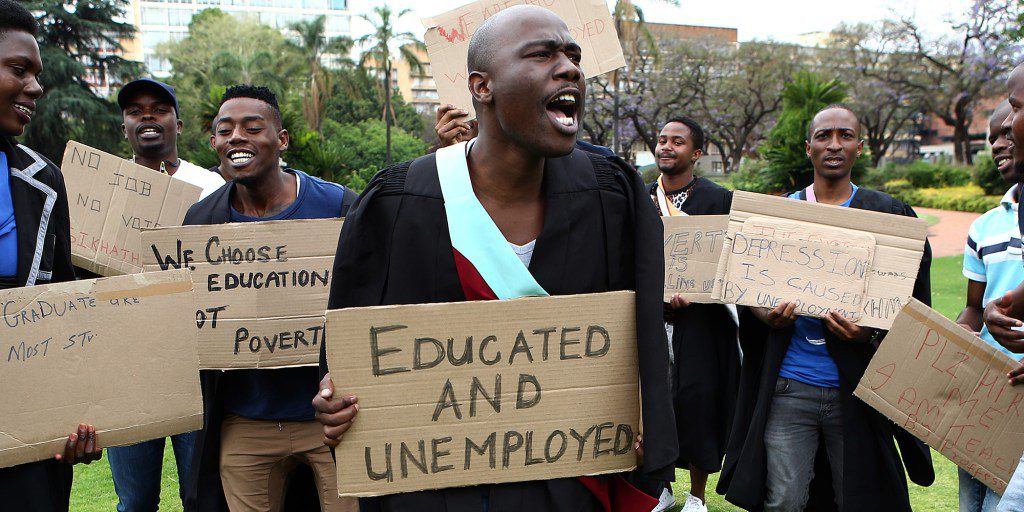
Nigeria’s unemployment rate dropped to 4.3% in Q2 – NBS
Nigeria’s unemployment rate stood at 4.3 per cent in the second quarter of 2024, the National Bureau of Statistics (NBS) has said in its latest report.
The report released on Monday said the unemployment rate decreased compared to the 5.3 per cent recorded in the Q1 of 2024.
The NBS defined the unemployment rate as the share of the labour force (the combination of unemployed and employed people) who are not employed but actively searching and are available for work.
“The unemployment rate for Q2 2024 was 4.3%, showing an increase of 0.1 percentage point compared to the same period last year,” the report stated.
“The unemployment rate among males was 3.4% and 5.1% among females.
“By place of residence, the unemployment rate was 5.2% in urban areas and 2.8% in rural areas. Youth unemployment rate was 6.5% in Q2 2024, showing a decrease from 8.4% in Q1 2024.”
Report also said the unemployment rate among persons with post-secondary education was 4.8 per cent; 8.5 per cent among those with upper secondary education, 5.8 per cent for those with lower secondary education, and 2.8 per cent among those with primary education in Q2 2024.
Employment rate – 76%
The report showed that the employment-to-population ratio, which measures the number of employed workers against the total working-age population, increased to 76.1 per cent in Q2 2024.
“In Q2 2024, 76.1% of Nigeria’s working-age population was employed, up from 73.1% in Q1 2024,” the report stated.
Self-employment – 85.6%
The report further showed that Nigeria’s labour market saw a notable shift as the proportion of self-employed individuals increased in Q2 2024.
It stated, “The proportion of persons in self-employment in Q2 2024 was 85.6%.”
-

 metro21 hours ago
metro21 hours agoBREAKING: Port Harcourt refinery begins operation
-

 Business3 days ago
Business3 days agoJust in: Dangote refinery reduces petrol price for marketers
-

 metro2 days ago
metro2 days ago40-foot container falls on car in Lagos
-
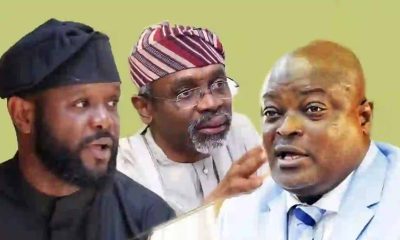
 Politics3 days ago
Politics3 days ago2027: Lagos Speaker, Obasa joins gov race, may battle Seyi Tinubu, others
-

 Politics2 days ago
Politics2 days agoLagos 2027: Seyi Tinubu campaign team releases his life documentary
-

 International2 days ago
International2 days agoTrump to sack 15,000 transgender officers from U.S. military: Report
-

 Entertainment2 days ago
Entertainment2 days agoPolygamy best form of marriage for Africa – Okey Bakassi
-

 Education14 hours ago
Education14 hours agoUS University opens 2025 scholarships for international students

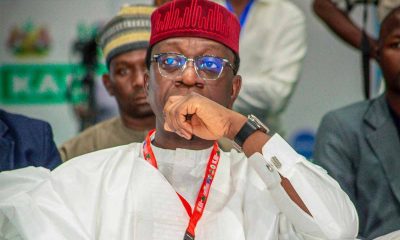

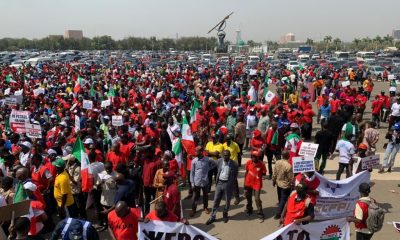

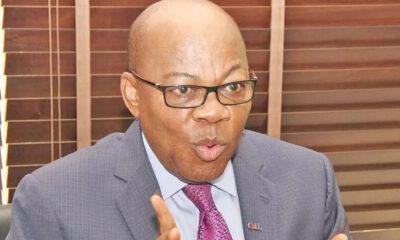

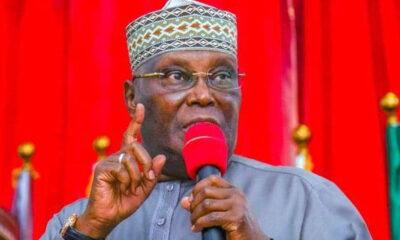

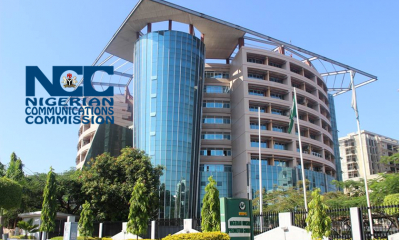





You must be logged in to post a comment Login